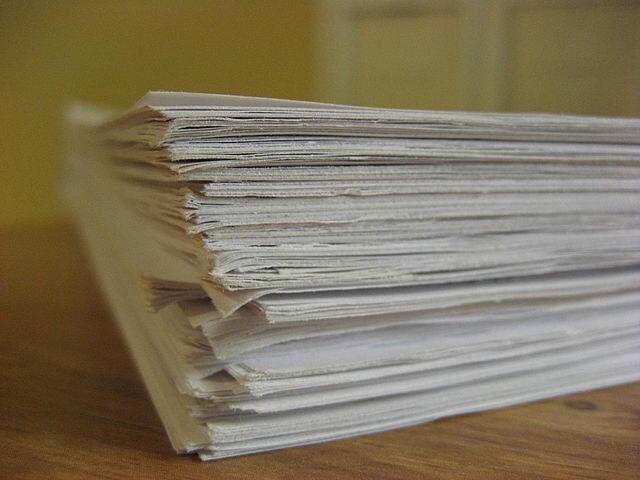By Ayse Eldes, copy editor
Six times each semester, English teacher Teresa Buczinsky takes her Creative Writing classes to the community room for their bi-weekly Coffee House readings. This event allows students to listen to others’ work and, if willing, share their work with others. Creative Writing students are required to fulfill 20 “public submissions” by sharing their work in class. Those who share their writing at Coffee House readings have the opportunity to gain double submission credit for their shared work.
While Buczinsky does not consider Coffee House readings extra credit, this can be an extra opportunity for students to fulfill their submission requirement. When it comes to borderline grades and the struggle to garner as many course points as possible, grade-boosting opportunities play a crucial role for students in the gradebook.
According to Creative Writing teacher and English Division Head Adam Levinson, Prospect’s extra credit policy is shaped by Professional Learning Communities (PLC). These are regular group meetings of teachers to discuss procedures for different course levels.
In the Social Science division, Division Head Gary Judson states that the general consensus is that extra credit is frowned upon. Judson highlights that PLC groups mainly determine extra credit procedures, that is, if given at all. Judson states that while there is not a school or district-wide policy, he doubts the district is in favor of extra credit. He believes PLC groups among teachers help maintain consistency with testing and extra credit procedures in the classroom.
Judson himself is firmly in opposition of extra credit. With his own experience of two children who went through high school with an abundance of extra credit opportunities, he does not feel that it is a necessity.
However, Judson takes a more flexible stance for test retakes. For social science classes such as World History, Human Geography and AP U.S. Government, students automatically have a retake either individually or with partners the day after the test, even if they did well on the first try.
“I think [test retakes] lower test anxiety and help you become a better test taker,” Judson said. “Eventually you have to do it without test retakes, but it helps you.”
Science teacher Mark Welter highlighted that test retakes are not common in math and science classes and are offered under extenuating circumstances such as family or health issues. He notes that he rarely is asked for retakes by students. Welter does, however, work with science teacher Michael Grasse to prepare well thought-out extra credit opportunities for their students.
Welter states that he uses extra credit as opportunities to visit same unit topics but usually in a more complicated manner. His extra credit opportunities are always based on course content and expanding on what was already covered.
One example of this is his Honors Problems quiz each unit. He publishes online material to study unit concepts at a higher level. Those willing can then take a quiz on these more complicated questions for extra credit.
To decide the standards for extra credit, Levinson believes that the English division’s approach is similar to other divisions.
“From … the English perspective, it shouldn’t be just to help bolster people’s grade because they’re just trying to get them to pass; it should help them to go above and beyond,” Levinson said. “Performance and understanding content is different than behavior … You know if the kid cuts your class, that’s a behavior issue. That student should be able to retake a test.”
Levinson stated that these procedures are developed by the department’s structure as a “backwards design division,” meaning that they conduct their courses with “the end in mind.” Levinson reports that most classes end the semester with a writing assessment, so when it comes to grade-boosting opportunities, they should address those skill sets. He believes this philosophy can be extended to all course divisions by asking these questions to determine the role of grade-boosting opportunities:
“What does it look like and how does that factor into your grading cycle?” Levinson said. “How does it factor into your teaching cycle? How does it factor into your scaffolding of skills?”
Categories:
Classes work in grade-boosting opportunities
November 9, 2017
0
Donate to ProspectorNow
This coming fall, we plan on traveling to the 2025 National High School Journalism Convention in Nashville, Tennessee, where we'll learn from professionals and get better at what we do: making the best multimedia student journalism in the state. If you've ever found anything of worth on this website, please consider donating to offset the cost.
More to Discover




































































